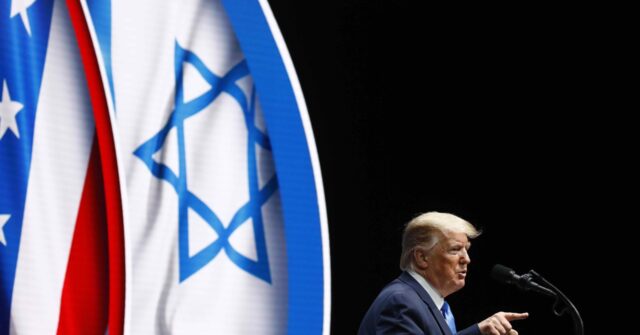President-elect Donald Trump’s commitment to Israel has been a central theme in his political agenda, particularly concerning military support and arms deliveries. Trump announced that on his first day in office, he would lift all restrictions and delays imposed on arms shipments to Israel. This pledge comes in the context of recent actions taken by the Biden-Harris administration, which had previously withheld precision bombs from Israel during a critical moment in May. The Biden administration’s decision was reportedly influenced by Israel’s military operations in Rafah, Gaza, which went against the White House’s explicit requests. Despite these tensions, Israel successfully achieved its military objectives, securing the Gaza-Egypt border and eliminating a key Hamas leader during the operation.
The Biden administration’s decision to withhold military supplies raised concerns among U.S. lawmakers and Israeli military officials regarding the perceived pressure on Israel to moderate its military strategy against Hamas. Notably, Senator Tom Cotton highlighted complaints about the administration’s failure to properly notify Congress regarding weapons deliveries that had already received approval. The political implications of these military decisions indicate a strategic interplay between U.S. foreign policy and Israeli military operations, suggesting that the Biden administration was using arms supplies as leverage to influence Israeli tactics.
The absence of precision bombs during critical operations in Gaza forced Israel to rely on ground troops, significantly increasing the risks for soldiers engaged in urban combat against entrenched militants. This shift in combat strategy underscored the importance of advanced military technology in minimizing casualties while maximizing operational effectiveness. Precision and bunker-busting munitions are vital components of Israel’s defense strategy, particularly in confrontations with adversaries like Hezbollah, which employs subterranean facilities to shield its operations. Israel’s previous military success in targeting Hezbollah’s leadership exemplifies the effectiveness of these advanced weapon systems in countering asymmetrical warfare tactics.
Amidst his commitment to resuming arms shipments, Trump emphasized a dual approach to Israel’s military challenges: support for Israel’s capacity to win its conflicts while simultaneously seeking diplomatic resolutions through negotiation. This strategy mirrors the success he had with the Abraham Accords during his first term in office, which normalized relations between Israel and several Arab nations. Trump’s vision for Israel was characterized by a proactive stance in addressing security threats while encouraging diplomatic channels to achieve lasting peace in the region.
As a prominent commentator on political affairs, Joel B. Pollak underscores the implications of Trump’s foreign policy intentions for Israel. Pollak’s analysis highlights the broader strategic context of U.S.-Israel relations, particularly regarding military assistance. His writings and broadcasts emphasize the significance of Trump’s promises and the potential ramifications of these commitments on U.S. foreign policy and Middle Eastern stability. Pollak’s role as a political discourse commentator positions him as a significant voice in shaping perceptions of Trump’s legacy and ongoing influence in American politics.
In conclusion, the anticipated shift in U.S. arms policy under President-elect Trump signifies a potentially transformative moment in U.S.-Israel relations. The implications of resuming unrestricted arms deliveries not only resonate within the military and strategic domains but also engage broader geopolitical dynamics in the Middle East. As the region grapples with complex security challenges, the intersection of military support and diplomatic efforts remains critical to shaping the future of U.S.-Israel relations and the ongoing pursuit of peace in the region. Trump’s agenda promises a return to unencumbered support for Israel, reinforcing the strategic partnership that has defined U.S. foreign policy for decades.

